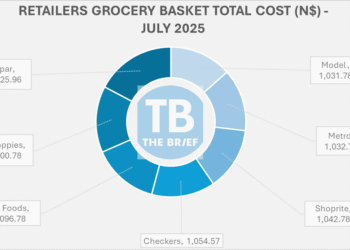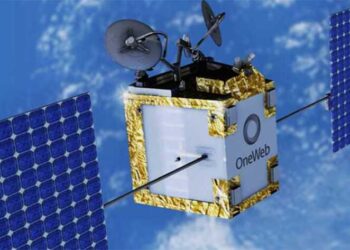
Swakop Uranium says it is yet to reach a break-even-point in its local operations after investing approximately N$89.4 billion (U$5.2 billion) in Husab mine over the years.
The company’s Executive Vice President for Human Resources and Corporate Affairs, Patrick Chizabulyo, said despite a good operations performance, the investment made into the mine is still to be recouped.
“For any company to realise profit and sustainability a substantial investment is needed, and in this case over U$5 billion has been pumped into the mine. We are performing well, and we have now managed to pay half of whatever has been invested. So, we are looking forward to a full repayment, and then we can start counting profits,” Chizabulyo told The Brief.
Swakop Uranium mine is 90% owned by China General Nuclear Holding, with state-owned Epangelo mining owning the remaining 10%.
Chizabulyo said the company set a target of 100 tonnes of mining and a final production output of 4500 tonnes of U308 (Uranium Oxide) for the current financial year, although it has the potential of mining up to 120 million tonnes, with an output of over 6000 tonnes of U308.
“We set targets for ourselves as a guidance of performance while we strive to reach our all-high mining capacity. As you might be aware, we are just recovering from Covid-19 impact and the uranium market price which was low. All in all, we were not severely impacted as we had a good Covid-19 management system, as well as the proactiveness of our shareholders who were able to offset and keep the mine afloat when the market was not doing well,” he added.Â
Fuel
Swakop Uranium Executive said the company was feeling the pinch of high fuel prices which are driving up its operational costs.
“Increasing fuel princesses are pushing the costs of gas higher, thus surpassing the budgeted amount. Our budget was aligned to the fuel price then, however, now that budget has been exceeded, and this is due to the fact that we mine 24/7 and our machineries and equipment run non-stop.We are really feeling the pinch, as our machines use high volumes of petrol and diesel,” he said.
The company, which employs around 1700 permanent workers and a further 1000 on contract, with locals constituting 95% of that workforce, generated and pumped N$3.2 billion in the Namibia economy last year after it exceeded its production targets of 103 million tonnes by 4%.Â
Production at Husab Mine started towards the end of 2016Â after completion of the sulfuric acid leaching plant , with mine construction having started in 2014.
Â











